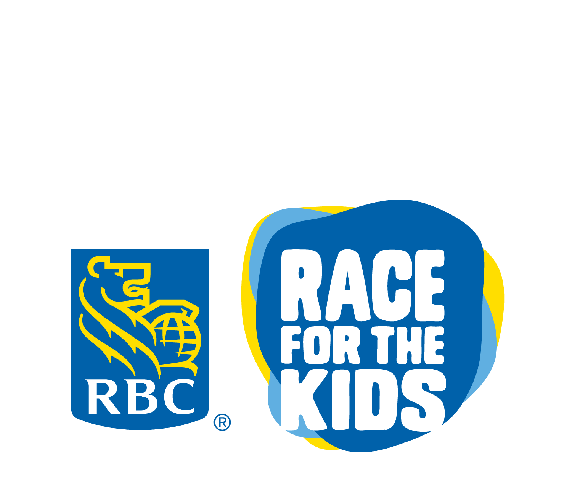The COVID-19 pandemic has tested Canadians in many ways. Finances, relationships, employment, and well-being — mental and physical — have been challenged. While people of all ages have felt the effects, young adults have been especially affected.
Resilience — the ability to recover after a setback — has increasingly been identified as a critical factor in how young Canadians have bounced back, and “bounced forward.”
It’s a skill we use everywhere — at school, work, in sports, and even in our passion projects and activities. In this first of nine articles, Kim Mason, Head of RBC Private Banking shares her personal reflections on how she’s witnessed youth rely on resilience, and clinical psychologist Dr. Diana Brecher reveals strategies young people can take to strengthen this skill.
The youth experience during the pandemic
“I’m seeing more and more youth falling into difficult times,” says Mason in a recent discussion. “I can speak from experience — I have three children between the ages of 21 and 25. While they’re all at different points in life, they have a few things in common: They don’t feel like they have a lot of choice in how they live their lives. They feel pressure and stress, and they don’t have a toolkit of how to manage through this period.” Mason is concerned that many youth don’t have the life experience needed to build the level of resilience required to manage through these challenging times. “They have not had enough experience with set-backs and rebounds to understand that recovery will come. Throughout an adult’s lifetime, we tend to see more of these ebbs and flows – and that recovery experience fuels our faith and resiliency. Youth today experiencing this pandemic do not have the same level of experience to draw upon.”
An RBC Future Launch study of more than 1,800 Canadians aged 14-29 further illustrates the need for mental health support among youth:
- 52% of respondents said the pandemic was negatively impacting their mental health and emotional well-being
- One third of respondents said they think about how to manage their mental health at work or school ‘often’ or ‘all the time’
- 42% of respondents said they think about having a trusted person to confide in when they are struggling ‘often’ or ‘all the time’
That’s where Dr. Brecher comes in. As Scholar-in-Residence for Positive Psychology at Ryerson University, Dr. Brecher has been working with young people at the school since 1991. She has developed the “5 Factor Model of Resilience” to help youth build essential skills and also worked with Strong Minds Strong Kids and RBC to create the Resiliency Quiz.
Dr. Brecher found that her less-resilient clients, who are typically between the ages of 18 and 26, generally had five things in common:
- They had trouble being in the present moment
- They tended not to give a lot of attention to the good things in their lives
- They were pessimistic
- They tended to be self-critical and self-judgemental
- They tended to give up on their goals because they felt overwhelmed.
RBC recently had the opportunity to go in-depth with Dr. Brecher’s and get her perspective on how youth can nurture and develop skills in resilience.
Q: How important do you feel resilience is?
Dr. Brecher: I would say resilience is something that we need at all times to face any challenge in our life. This context of the pandemic is such that it requires a constant need for resilience because of all the different types of stressors that are playing out in our lives. Someone said to me: We’re all in the same storm, but we’re in different boats. Some of us are in ocean liners and some of us are in leaky rafts. The inequities are very clear.
Q: What are you observing in young people you’ve worked with?
Dr. Brecher: I think that a lot of young people don’t necessarily have the financial resources to stay off public transit, order in their food, or whatever they need. Maybe they work in front-line jobs and are therefore at a higher risk. All of those things have an impact. And they may not have had the life experience to know that things will bounce back, so it feels that much harder.
Q: Compared to adults, do you think young people have a harder time developing resilience?
Dr. Brecher: Age is one factor in developing resilience, but it’s not the only one. There are young people who have gone through enormous life challenges — they may have been raised in a war-torn country, or dealt with loss or medical issues from a young age. For some people, it’s not about age, but the trajectory of their life.
With that being said, one of the benefits of age is that you do have that perspective that you’ll get over it. In the absence of that life experience, other interventions can compensate.
Q: Is that why you developed your 5 Factor Model of Resilience?
Dr. Brecher: The 5 Factor Model is to address all this through mindfulness, gratitude, optimism, self-compassion and grit. These are all learnable skills that if you practice over a period of time, you can feel more buoyant and more resilient.
The impact of choice in developing resilience
“I think that one of the paths to resilience is to recognize the choices we have so we don’t feel helpless. When we can make some decisions, we can climb our way out of situations,” says Mason, who witnessed resilience first hand when one of her children was cyberbullied in a new high school. “I gave her the choice to change schools if she wanted. She decided to leave and chart her own path. She got 100% behind the move and was determined to make it work. I truly believe her choice in the matter — her control over this aspect of her life — was a factor in her resilience.”
Q: What role does choice play in the ability to build resilience?
Dr. Brecher: It’s incredibly empowering. So often adversity strikes, and part of the package of adversity is that we don’t feel like we have a choice — something has happened to us. Any kind of proactive stance we can take is empowering. No matter what is happening, we can make small decisions, even if we can’t influence the outcome as a whole.
Q: What choices can we make to help build resilience?
Dr. Brecher: You can choose how you treat people in your life, including yourself. You can choose to give yourself a spa day at home or a treat of your favourite book or favourite show or talk to someone you really want to talk to.
The consequences of not developing resilience
“Resilience is the ability to restart each day and get perspective on the events and challenges of the previous day,” reflects Mason. “If you don’t step back and get some perspective, the world can feel heavy and you will lack the strength to reach for each new day. Resilience is so critical, especially with this being an extended period of challenge.”
Dr. Brecher adds that resilience can be defined as the capacity to bounce back after adversity and shares her thoughts on the consequences of not developing this essential skill.
Q: What may happen if you don’t develop much resilience?
Dr. Brecher: You’re going to survive, but it’s going to cost you more. For example, pessimists will encounter things and will predict the same negative event will spill over to other parts of their life and that it was all their fault. This outlook robs them of good experiences, which they feel are just flukes or temporary. The pessimist/ optimist dimension alone makes life harder.
Q: You recently developed a Resiliency Quiz in partnership with Strong Minds Strong Kids and RBC. How can that help young people build the skills they need?
Dr. Brecher: For every question, I inserted facts that would be helpful to the reader taking the quiz. My hope is that the person reading it will acquire knowledge that would be useful for them – that they gain knowledge about resilience just by reading those questions.
Resiliency is an on-going journey that involves the courage to wake up each day and start fresh, knowing that there are new possibilities around the corner. Whether you are a parent, like Kim, or a young person struggling to meet each day with a positive mindset, there are resources available to support you on the RBC Future Launch at home site. Take some time and explore.
How resilient are you?
Nurturing your resilience will not only help you get through tough times, but it can also help empower you to grow and improve your life in many ways. Try the Resiliency Quiz to see how resilient you are today, and learn about the strategies you can adopt that will enhance your life-long resiliency.

RBC Race for the Kids returns in a global, virtual format for an event weekend on October 16-17, 2021. There are 35 charity partners from around the globe you can choose to support, all benefiting kids and youth-focused causes – including youth mental-wellbeing.
You can participate no matter where you are in the world by pledging to run/walk/roll using our new mobile app. Sign up today at RBCRacefortheKids.com!
This article is intended as general information only and is not to be relied upon as constituting legal, financial or other professional advice. A professional advisor should be consulted regarding your specific situation. Information presented is believed to be factual and up-to-date but we do not guarantee its accuracy and it should not be regarded as a complete analysis of the subjects discussed. All expressions of opinion reflect the judgment of the authors as of the date of publication and are subject to change. No endorsement of any third parties or their advice, opinions, information, products or services is expressly given or implied by Royal Bank of Canada or any of its affiliates.



















